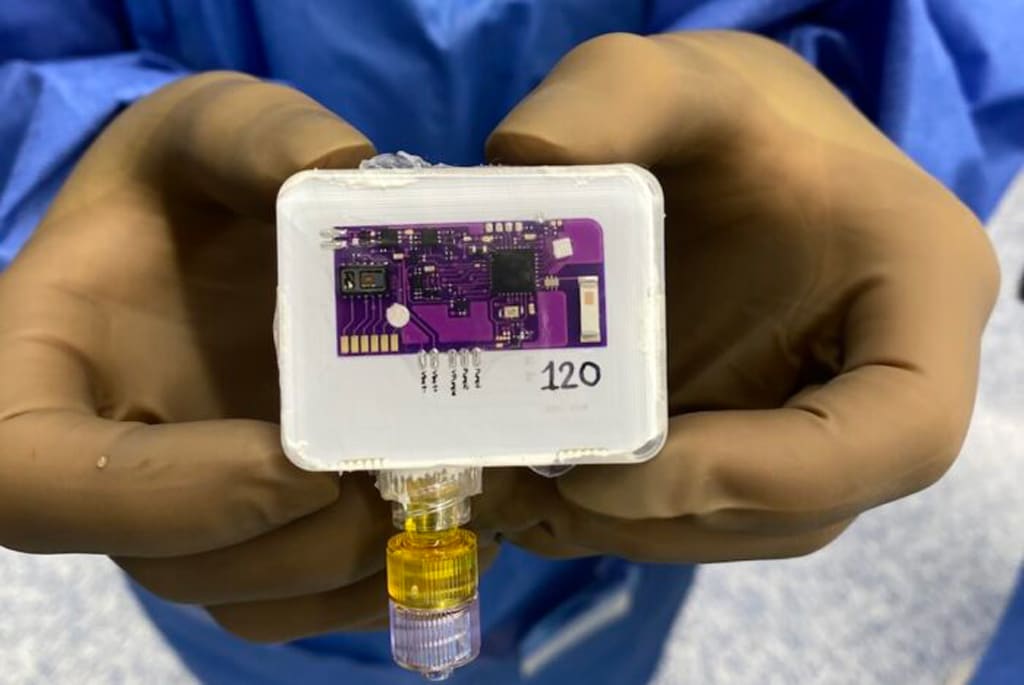
Researchers have developed a device that may rescue people from overdose without bystander help. In animal studies, the researchers found that the implantable device detects an overdose, rapidly delivers naloxone to prevent death, and alerts emergency first responders.
The device — the Naloximeter — uses a drop in oxygen levels as a signal for a potential overdose. Overdosing on opioids leads to slow and shallow breathing. Minutes after the drugs begin to impact respiratory function, breathing stops. Implanted under the skin, the Naloximeter senses oxygen in the surrounding tissues, sending a warning notification to a mobile application if the levels drop below a threshold. If the user doesn’t abort the rescue process within 30 seconds, the device releases stored naloxone.
The researchers implanted the device in the neck, chest or back of small and large animals. The device detected signs of overdose within a minute of dropping oxygen levels, and all animals fully recovered within five minutes of receiving naloxone from the devices.



